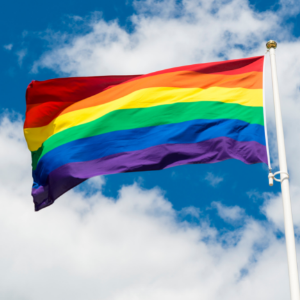By Sarah Shattuck

Lesbian Gay Bisiexual Transgender, Non-Binary, and Queer (LGBTQ) communities across the world will gather this month to celebrate social and equality achievements, and to bring awareness to the other social issues affecting them. In honor of the Stonewall riots in late June 1969 in San Francisco, California, Pride celebrations generally take place every year during the month of June. Through this article, I endeavor to bring awareness not only of the LGBTQ community and their daily resistance, but also highlight the similarities between the LGBTQ and climate justice.
"Climate justice" is a term used to frame climate change as an ethical and political issue rather than just an environmental issue. It acknowledges that climate change can have differing social, economic, public health, and other adverse impacts on underprivileged populations and is founded on the principles that we all deserve a planet where we can thrive and be safe. Climate justice "insists on a shift from a discourse on greenhouse gases and melting ice caps into a civil rights movement with the people and communities most vulnerable to climate impacts at its heart." -- Mary Robinson, former President of Ireland, during a UN General Assembly in 2019.
Individuals in the LGBTQ community are often at the forefront of resistance movements. This is especially true when it comes to fighting against climate change. Activism around social justice and climate change are increasingly being interwoven; their dependency on one another has given rise to the term "intersectional environmentalism."
LGBTQ populations are concentrated in coastal cities like Miami, New York, and San Francisco, all of which are at high risk for sea level rise and increasing storm surges. As our planet warms, more frequent and severe weather will exacerbate these vulnerabilities, exposing the LGBTQ communities around the country to greater risk, directly affected by climate change. Taking into consideration the prevalence and interlacing issues between the LGBTQ community and climate justice, it is believed that queer liberation must a key principle in climate justice organizing.
In order to achieve safety and justice for the LGBTQ community and our future on this planet, climate justice must be realized. Likewise, in order for climate justice to be made real for all of us, liberation of the LGBTQ community must be lifted up in movements that set out to tackle this crisis.